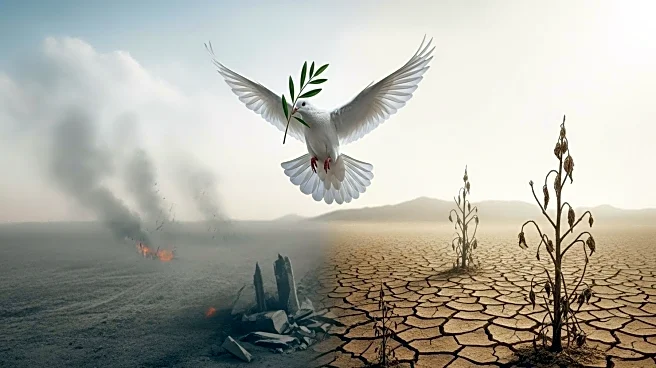What is the story about?
What's Happening?
Israel plans to slow or halt humanitarian aid into parts of northern Gaza as it expands its offensive against Hamas. An official, speaking anonymously, stated that Israel will stop airdrops over Gaza City and reduce aid truck arrivals in the northern region, preparing to evacuate residents south. Gaza City has been declared a combat zone, with the military ramping up strikes on the city's outskirts. The death toll in Gaza has risen to over 63,000, with recent fatalities due to starvation and malnutrition. Aid groups warn that a large-scale evacuation would worsen the humanitarian crisis, as the region faces extreme shortages of food, water, and medical care.
Why It's Important?
The decision to slow humanitarian aid in northern Gaza has significant implications for the already dire humanitarian situation. The reduction in aid could exacerbate the suffering of the population, with many facing catastrophic levels of hunger. The evacuation of residents poses logistical challenges, as the infrastructure in the south is unable to support the influx of displaced individuals. The move has drawn criticism from international organizations, highlighting the complex balance between military objectives and humanitarian needs.
What's Next?
Israel's military is expected to continue its offensive, urging residents to evacuate south. Aid organizations and the international community will likely increase efforts to provide support, despite the challenges posed by the conflict. The situation remains volatile, with potential for further escalation and diplomatic efforts to address the humanitarian crisis.
Beyond the Headlines
The conflict in Gaza raises broader questions about the ethics of military operations and the protection of civilians. The reduction in aid highlights the difficulties in providing humanitarian support in conflict zones, and the long-term impact on regional stability remains uncertain.
















